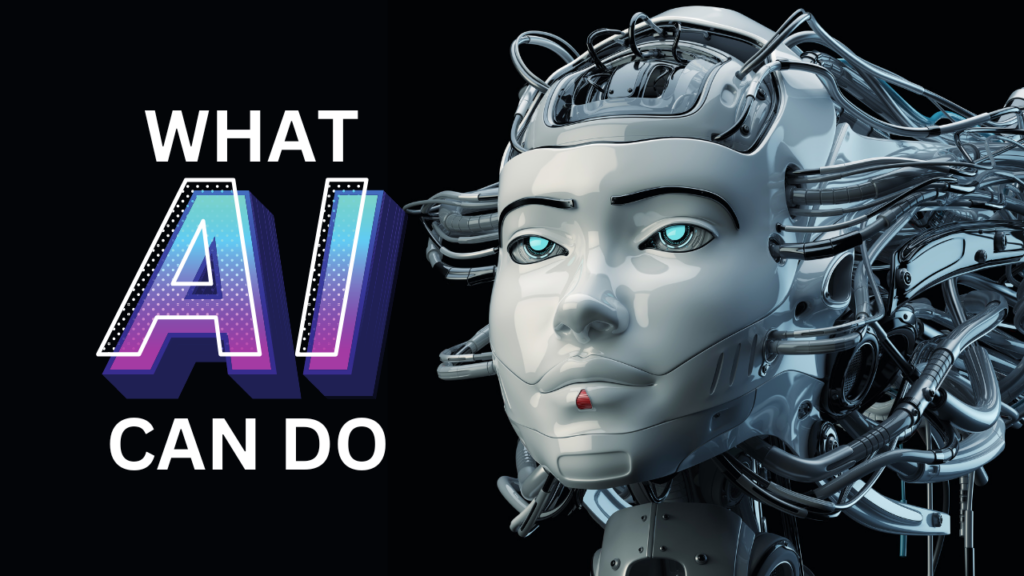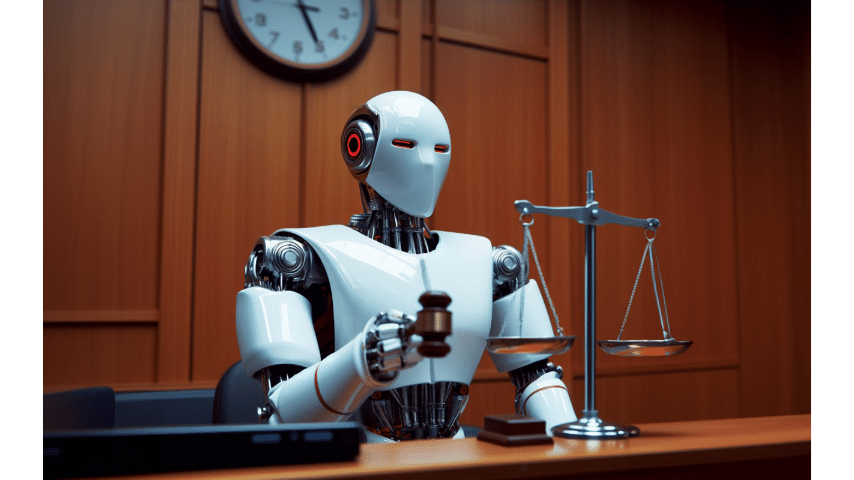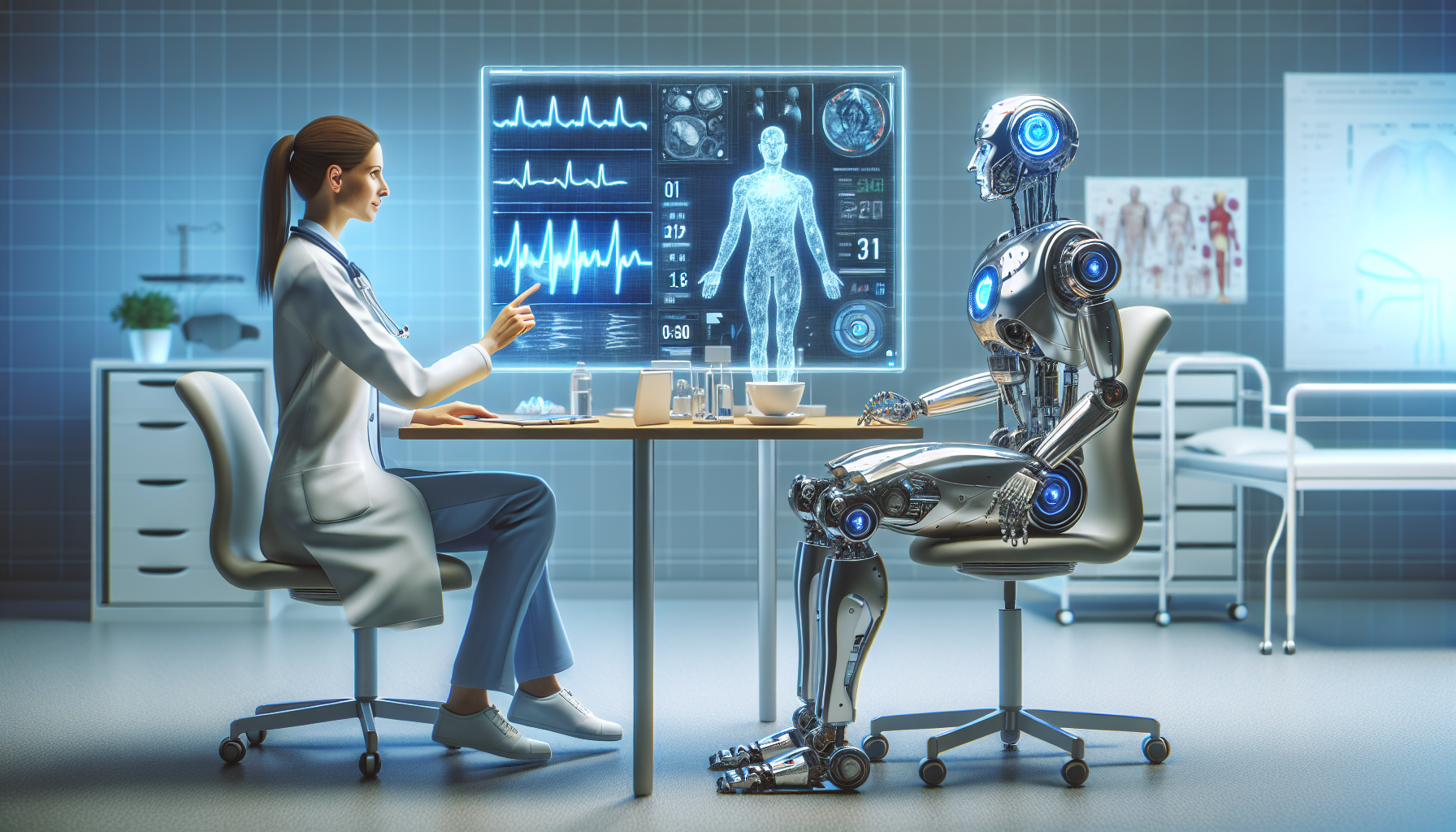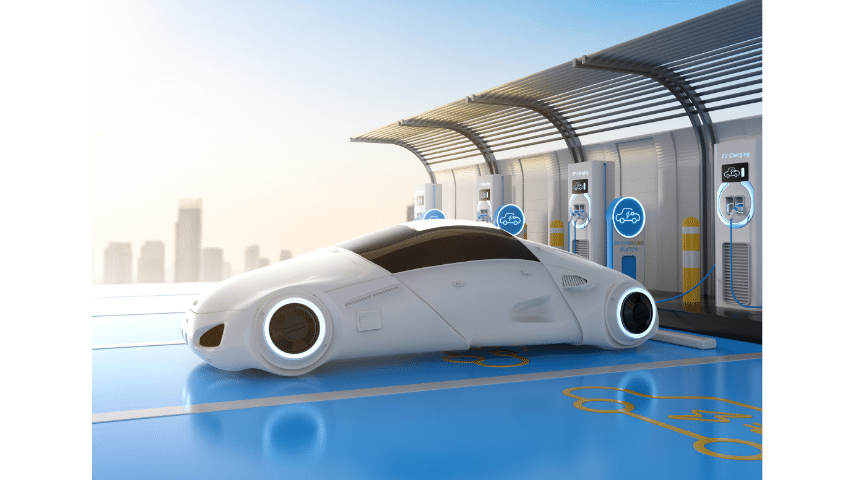
Automation in healthcare is revolutionizing the way doctors diagnose and treat patients. By harnessing the power of Artificial Intelligence (AI), doctors are empowered with tools to accurately diagnose diseases at their earliest stages and tailor treatments to each patient’s unique genetic makeup. This personalized approach to healthcare is bringing hope and improving outcomes for patients. AI is not replacing doctors, but rather enhancing their abilities and making “one size fits all” treatments a thing of the past. With AI’s help, we are entering a future where technology and humanity work together to provide smarter and more compassionate healthcare.
Automation in Healthcare: Empowering Doctors and Personalizing Treatment
Artificial intelligence (AI) is revolutionizing the field of healthcare, empowering doctors and personalizing treatment in ways that were once unimaginable. With the help of AI, doctors are able to make more accurate diagnoses and provide more effective treatments.
Impact of AI in Healthcare
AI has had a profound impact on the healthcare industry. It has transformed the way diseases are detected, diagnosed, and treated. AI algorithms are now able to sift through vast amounts of medical data, including patient records, lab results, and imaging scans, to identify patterns and indicators of diseases such as cancer at their earliest stages. This early detection can be crucial in increasing a patient’s chances of survival and improving their overall quality of life.
AI’s Role in Disease Detection
AI plays a crucial role in disease detection by analyzing medical data and identifying potential signs of illness. For example, AI algorithms can analyze mammograms to detect breast cancer, or examine retinal scans to identify early indicators of diabetic retinopathy. By automating this process, AI enables doctors to identify diseases more accurately and at an earlier stage, when treatment options are often more effective.

Empowering Doctors with AI Tools
AI is not meant to replace doctors, but rather to empower them with advanced tools and insights. AI systems can help doctors make more informed decisions by analyzing patient data and providing personalized recommendations. These AI tools can assist doctors in diagnosing complex conditions, selecting appropriate treatment options, and predicting patient outcomes. By augmenting the expertise of doctors, AI enables them to provide better care and improve patient outcomes.
Personalization of Medical Treatments with AI
One of the key advantages of AI in healthcare is its ability to personalize medical treatments. Each patient is unique, and what works for one might not work for another. AI algorithms can analyze genetic and biometric data to tailor medical treatments to individual patients. This personalized approach takes into account factors such as genetic predispositions, past treatment outcomes, and lifestyle choices to provide the most effective and efficient treatment plans. By personalizing medical treatments, AI helps ensure that patients receive the care that is best suited for their specific needs.
AI in Education
Artificial intelligence is also making a significant impact in the field of education. AI is transforming the way students learn and the way teachers teach, providing personalized and inclusive educational experiences.
AI as a Supportive Teacher
AI acts as a supportive teacher, adapting to the unique needs and learning styles of each student. AI-powered educational platforms can analyze student performance data and provide personalized recommendations and feedback. These platforms can offer additional learning resources, adapt the learning pace to the individual student’s needs, and provide targeted interventions to help struggling students. By tailoring the learning experience to each student, AI ensures that no student is left behind.
Tailoring Education to Individual Needs
AI allows for the tailoring of education to individual needs. Adaptive learning platforms powered by AI can assess students’ strengths and weaknesses and provide targeted exercises and materials to address their specific areas of improvement. This personalized approach helps students grasp concepts more effectively and fosters a deeper understanding of the subject matter. By catering to individual needs, AI helps students achieve their full potential and promotes a love for learning.
Benefits for Teachers with AI Assistants
AI is not only beneficial for students but also for teachers. AI assistants can assist teachers with administrative tasks, such as grading assignments, creating lesson plans, and managing student records. By automating these time-consuming tasks, AI frees up teachers’ time and energy, allowing them to focus on what they do best – teaching and inspiring students. Additionally, AI can provide teachers with valuable insights and analytics about student performance, helping them identify areas of improvement and tailor their teaching strategies accordingly.
AI and the Environment
Artificial intelligence is playing a crucial role in addressing some of the biggest challenges facing our planet, particularly in the realm of environmental sustainability.
AI’s Contribution in Fighting Climate Change
AI is helping us tackle climate change by analyzing complex climate data and providing insights that can inform policy decisions and drive action. AI algorithms can analyze vast amounts of historical climate data, as well as real-time information from sensors and satellites, to identify patterns, trends, and potential risks. This analysis can help governments and organizations make informed decisions about mitigating climate change, developing renewable energy sources, and implementing strategies to adapt to changing environmental conditions.
Sustainable Farming with AI in Agriculture
Agriculture is a sector where AI has immense potential to drive sustainability. AI can analyze data from weather conditions, soil quality, and crop health to optimize farming practices and reduce the use of harmful chemicals and resources. AI-powered systems can help farmers make informed decisions about irrigation schedules, fertilizer application, and pest control, resulting in higher crop yields, reduced environmental impact, and increased food security. By promoting sustainable farming practices, AI contributes to a healthier planet and a more sustainable future.
AI and Transportation
Artificial intelligence is transforming the transportation industry, making transportation more efficient, safer, and more sustainable.
The Impact of Self-Driving Cars
Self-driving cars are a prime example of how AI is revolutionizing transportation. Autonomous vehicles powered by AI algorithms have the potential to reduce accidents and save lives by eliminating human error, which is responsible for the majority of road accidents. Self-driving cars can also optimize traffic flow, reduce congestion, and cut down on fuel consumption, leading to more sustainable and environmentally-friendly transportation systems. The development of self-driving cars is not only an exciting technological advancement but also a major step towards safer and more efficient transportation.
Advantages of Smarter and Sustainable Cities
AI has the power to make cities smarter and more sustainable. AI algorithms can analyze data from sensors, cameras, and other sources to optimize traffic management, reduce energy consumption, and improve waste management. For example, AI-powered predictive analytics can help manage traffic flow and reduce congestion by analyzing real-time data on weather conditions, road conditions, and traffic patterns. AI can also optimize energy usage in buildings by analyzing data on occupancy, weather, and energy consumption patterns to automatically adjust heating, cooling, and lighting systems. Additionally, AI can improve waste management systems by analyzing data on waste generation and collection routes to optimize collection schedules and routes, reducing costs and environmental impact. By harnessing the power of AI, cities can become more efficient, sustainable, and livable.
AI in the Financial World
Artificial intelligence is revolutionizing the financial industry, providing sophisticated tools and insights to enhance financial decision-making, detect fraud, and protect consumer interests.
AI as a Financial Advisor
AI is transforming the way individuals manage their finances by acting as a virtual financial advisor. AI-powered financial advisory platforms can analyze an individual’s financial data, goals, and risk tolerance to provide personalized investment recommendations and financial planning advice. These AI-driven platforms can help individuals make more informed decisions about saving, investing, and planning for their financial future. By democratizing access to financial advice, AI empowers individuals to make better financial choices and improve their long-term financial well-being.
Fraud Detection and Protection
AI is also instrumental in detecting and preventing financial fraud. AI algorithms can analyze vast amounts of transaction data and flag suspicious patterns or anomalies that could indicate fraudulent activity. These algorithms can learn from past instances of fraud and continuously adapt to new forms of fraudulent behavior, improving their accuracy over time. By detecting and preventing fraud, AI protects individuals, businesses, and financial institutions from financial loss and maintains the integrity of the financial system.
AI in Shopping
Artificial intelligence is transforming the shopping experience, providing personalized recommendations, streamlining supply chains, and enhancing the overall efficiency and convenience of shopping.
Personalized Shopping Experiences
AI algorithms can analyze consumer data, such as purchase history, browsing behavior, and demographic information, to provide personalized product recommendations and tailored shopping experiences. These recommendations can help consumers discover new products, find items that align with their preferences and needs, and make more informed purchasing decisions. By personalizing the shopping experience, AI enhances customer satisfaction and loyalty, and drives business growth.
Streamlining Supply Chains
AI is also revolutionizing supply chain management by optimizing inventory management, improving demand forecasting, and enhancing logistics operations. AI algorithms can analyze data on sales, customer demand, and supply chain performance to identify patterns and trends, enabling businesses to make more accurate predictions about future demand and optimize their inventory levels accordingly. AI can also streamline logistics operations by optimizing delivery routes, minimizing transportation costs, and improving overall efficiency. By streamlining supply chains, AI enhances operational efficiency, reduces costs, and improves customer satisfaction.
Challenges of AI
While AI offers immense potential and benefits, it also presents challenges that need to be addressed for its responsible and ethical development and use.

Ethical Development and Use of AI
One of the key challenges of AI is ensuring its ethical development and use. AI algorithms are trained on large datasets that may contain biases, and if left unchecked, these biases can perpetuate inequalities and discrimination. It is crucial to develop AI systems that are fair, transparent, and accountable. This involves ensuring that AI algorithms are trained on diverse and representative datasets, establishing ethical guidelines and regulations for AI development and use, and actively involving stakeholders in the decision-making process.
Adapting to AI-Driven Job Landscape
AI is also reshaping the job landscape, automating certain tasks and roles, and creating new opportunities. However, this shift requires individuals to adapt and acquire new skills to remain relevant in the workforce. It is important to invest in education and training programs that equip individuals with the skills needed to thrive in an AI-driven world. This includes fostering a lifelong learning mindset, promoting digital literacy, and providing opportunities for reskilling and upskilling. By embracing the changes brought about by AI, individuals can harness its potential and contribute to a thriving and inclusive economy.
The Promise of AI
Artificial intelligence holds the promise of enriching our lives through technology, creating a synergy between technology and humanity that enhances our abilities and opens up new possibilities.
Enriching Lives Through Technology
AI has the potential to revolutionize every aspect of our lives, from healthcare and education to transportation, finance, and shopping. By harnessing the power of AI, we can improve healthcare outcomes and personalize medical treatments, create inclusive and personalized educational experiences, build smarter and more sustainable cities, enhance financial decision-making and protect against fraud, and enhance the convenience and efficiency of shopping. The possibilities are endless, and they all contribute to enriching our lives, making them easier, faster, and more enjoyable.
Creating a Synergy Between Technology and Humanity
The true promise of AI lies in creating a synergy between technology and humanity. AI should not replace human judgment and empathy; instead, it should enhance and augment our capabilities. By using AI as a tool, we can leverage its power to make better decisions, solve complex problems, and improve our quality of life. It is essential to ensure that AI is developed and used in a responsible and ethical manner, respecting privacy, diversity, and human values. By embracing the promise of AI while remaining mindful of its impact, we can create a future where technology and humanity work hand in hand, creating a more humane and compassionate world.



